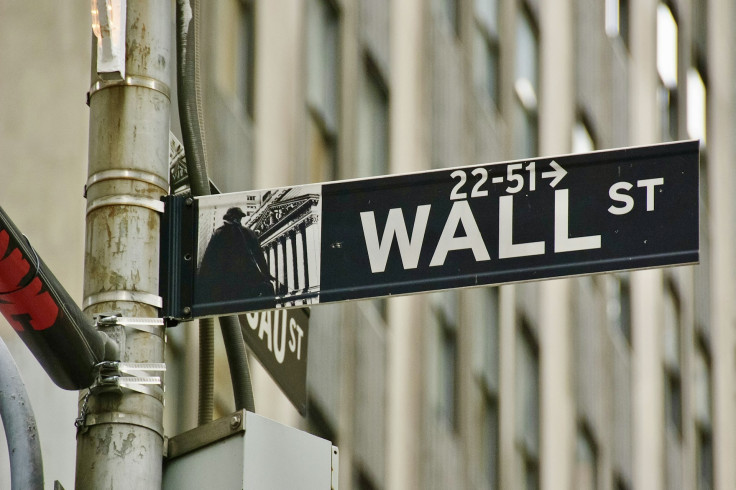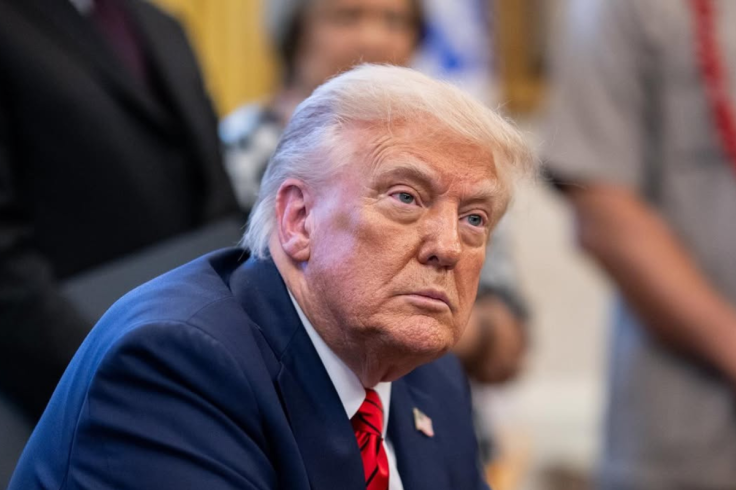Red Day on Wall Street: China Trade Spat Sends Dow and Nasdaq Tumbling
Markets reel as China retaliates against US trade measures, sending stocks, crypto, and investor confidence into sharp decline

Wall Street faced a sharp downturn on Tuesday, 14 October 2025, as renewed trade tensions between the United States and China rattled investor confidence and triggered a broad sell-off across major indices.
The Dow Jones Industrial Average fell by over 500 points, while the tech-heavy Nasdaq dropped nearly 2%, marking one of the steepest single-day declines in recent weeks.
According to The Economic Times, the S&P 500 also slid 1.3%, with tech and AI giants such as Nvidia (-3.9%), Tesla (-3.8%), and Oracle (-4.3%) leading the decline.
The sharp sell-off came as Beijing announced sanctions against five US subsidiaries of South Korean shipbuilder Hanwha Ocean, which is widely interpreted as retaliation for Washington's latest export controls and tariff threats. The sanctions prohibit Chinese organisations and individuals from transacting with US units of Hanwha Ocean Co., fuelling a slump in global equities as traders dialled back hopes for an easing of tensions between the world's largest economies.
The renewed volatility comes just ahead of the US earnings season, with major banks including JPMorgan Chase, Citigroup, and Goldman Sachs set to report quarterly results. Analysts warn that the trade spat could overshadow earnings performance and complicate forward guidance.
Trump's Tariff Threat Reignites Trade War Fears

Adding fuel to the fire, President Donald Trump announced plans to impose a 100% tariff on Chinese goods starting 1 November, citing Beijing's 'hostile' stance on rare earth exports.
Writing on his Truth Social platform, Trump stated: 'One of the Policies that we are considering at this moment is a massive increase of Tariffs on Chinese products coming into the United States of America.'
The announcement reversed early gains in the market, which had seen the Nasdaq hit a fresh intraday record just days earlier. All three major indices posted weekly declines of at least 2.4%, underscoring the fragility of investor sentiment amid geopolitical uncertainty.
Global Ripple Effects
The impact of the US-China standoff has not been confined to American markets. European and Asian exchanges also experienced heightened volatility, with the FTSE 100 and Nikkei 225 both closing lower on Tuesday.
Analysts at MarketMinute noted that 'renewed trade friction threatens to derail nascent economic recoveries and casts a long shadow over corporate earnings, prompting investors to flee risk assets in favour of safe havens.'
The tit-for-tat exchange of tariffs, export controls, and sanctions has raised concerns about long-term damage to global supply chains, particularly in sectors reliant on semiconductors, rare earths, and maritime logistics.
Amid the market turbulence, attention is turning to Federal Reserve Chair Jerome Powell, who is scheduled to speak later this week. Investors are hoping for clarity on interest rate policy and inflation outlook, especially as the central bank navigates the dual challenges of economic slowdown and geopolitical instability.
Outlook: More Volatility Ahead?
With trade tensions unlikely to ease in the short term, analysts expect continued volatility across equities, commodities, and currencies. The VIX, Wall Street's so-called 'fear gauge,' has climbed to its highest level in months, reflecting growing unease among investors.
While some market participants view the pullback as a potential buying opportunity, others remain cautious. Morgan Stanley strategists have warned that without progress on trade negotiations, sustained market gains may be difficult to achieve.
What Lies Ahead for Markets?
The escalating trade war comes at a particularly sensitive time, with the US earnings season just beginning and the Federal Reserve navigating the dual challenges of economic slowdown and geopolitical instability.
US-China tensions ratcheted up in earnest last week, when Trump said the US would impose an additional 100 per cent tariff on Chinese goods starting on November 1 over Beijing's plan to impose new export controls on rare earth minerals.
As investors brace for further turbulence, attention turns to whether President Trump and Chinese President Xi Jinping will proceed with their planned meeting at the upcoming APEC summit in South Korea. US Treasury Secretary Scott Bessent said, 'President Trump said that the tariffs would not go into effect until November 1.
The renewed volatility serves as a stark reminder of how quickly geopolitical tensions can upend financial markets, leaving investors searching for safe havens amid an increasingly uncertain global landscape.
© Copyright IBTimes 2025. All rights reserved.





















